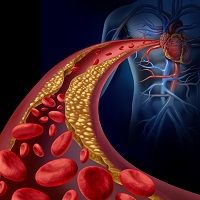Tocilizumab Reduces LDL-C in Patients with Rheumatoid Arthritis
LDL-C was reduced in RA patients who took tocilizumab compared to placebo in a study published in Annals of the Rheumatic Diseases.

Tocilizumab (TCZ) induced increases in low density lipoprotein cholesterol (LDL-C) in rheumatoid arthritis patients (RA), compared to those taking placebo, according to findings published in Annals of the Rheumatic Diseases.
Researchers from the United States, the United Kingdom, and Canada evaluated lipid and lipoprotein levels, HDL particle composition, markers of coagulation, thrombosis, and vascular function by pulse wave velocity (PWV) in a phase 3 trial. The study encompassed 132 patients with RA who received TCZ or placebo. Patients who had moderately to severely active RA for more than 6 months were involved in the study. The patients also had inadequate responses to methotrexate (MTX) therapy, antitumor necrosis factor α (aTNF) agent during the previous 6 months to the study. MTX therapy was continued during the study, though.
Patients were prohibited from initiating lipid lowering, oral antidiabetic, or antihypertensive medications within 12 weeks of baseline, and glucocorticoid doses (≤10 mg) had to remain stable throughout.
TCZ, the interleukin 6 receptor (IL 6R) blocker, can reduce inflammatory disease activity in RA, but elevates lipid concentrations in some patients. The researchers wanted to characterize the impact of IL 6R inhibition on established and novel risk factors in active RA.
The researchers observed increased medial total cholesterol, LDL-C, and triglyceride levels in the TCZ patient group versus placebo patients by week 12 (12.6 percent vs. 1.7 percent, 28.1 percent vs. 2.2 percent, 10.6 percent vs. −1.9 percent, respectively). There were no differences between the 2 groups in terms of small LDL, mean oxidized LDL, or total HDL-C concentrations. Both groups demonstrated no changes in the ApoB/ ApoA1 ratio. The placebo group saw greater decreases in PWV than the TCZ group at 12 weeks.
The researchers noted that for the TCZ group, HDL associated serum amyloid A content was reduced. There were also reductions (> 30 percent) in secretory phospholipase A2 IIA, lipoprotein (a), fibrinogen, and D dimmers and elevation of paraoxonase in the TCZ group.
“IL 6R blockade with TCZ in patients with active RA not only reduces markers of inflammation but also affects quantitative and qualitative changes in lipids and lipoproteins,” the authors concluded. “Such changes include a global increase in LDL-C concentration, in line with findings from other biological studies, and apparently favorable changes to HDL particle composition, rendering them less pro inflammatory.”